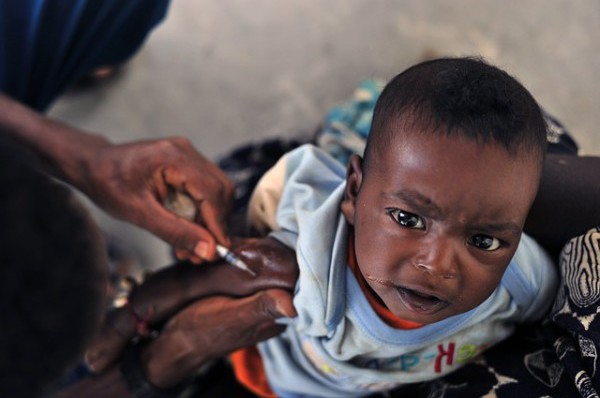There’s been some good news on the vaccine front recently with the very promising Ebola vaccine currently in trials and positive feedback for a potential malaria vaccine. Both are products of years in the making: the positive results of the Ebola vaccine were first published 10 years ago in 2005, and GlaxoSmithKline and PATH began working on making the malaria vaccine available to patients in 2001.
It’s great news, but it’s also relevant to note that the Ebola vaccine researchers were hopeful that this potential vaccine would be ready for use for humans by 2010 or 2011. This highlights a different issue; the rarity of some diseases discourages pharmaceutical companies from developing vaccines and treatments. Up until the last outbreak, Ebola was a rare disease, and when developing a vaccine can cost hundreds of millions of dollars, it just wasn’t lucrative enough for a drug company to take on.
Feature Image Source: John Moore
As another example, the drug Gleevec is very useful in people with chronic myeloid leukemia (CML), but it was difficult to convince drug companies to pursue it when only about 10% of new leukemia cases are CML, and not everyone with CML will respond to Gleevec.
The malaria vaccine, on the other hand, is the opposite. Billions of people are still at risk for malaria, with millions of cases occurring worldwide. The problem here is not if the vaccine will be lucrative but whether it’s effective at providing immunity. This vaccine has an efficacy rate of around 30%, meaning that it induces an immune response about 30% of the time. In comparison to the measles vaccine, which provides protection over 90% of the time, the malaria vaccine doesn’t seem to have a very high protection rate. It’s also most effective for immunizing children between ages 6 weeks to 17 months, as efficacy decreases after a year.
Nevertheless, researchers still believe that the malaria vaccine is an important achievement in the fight against malaria.
The difference between the development of the Ebola vaccine and the malaria vaccine is stark; pushing the Ebola vaccine through trials came after the height of the outbreak, at the wrong time, while the malaria vaccine has come at the right time, but is not quite as effective. There needs to be a balance, and hopefully the next major vaccine will come at the right time and still be efficacious.
Feature Image Source: Global Panorama










